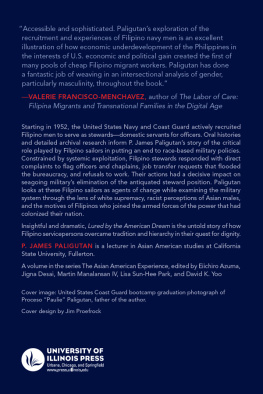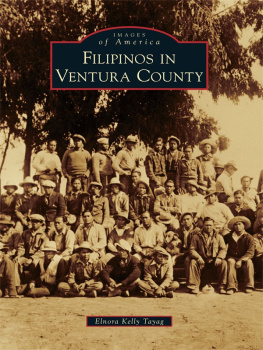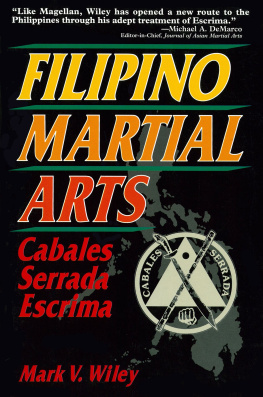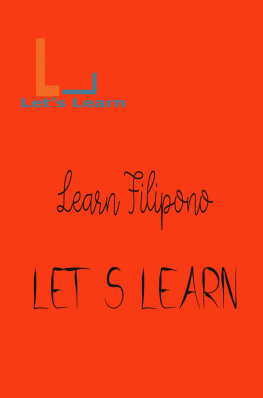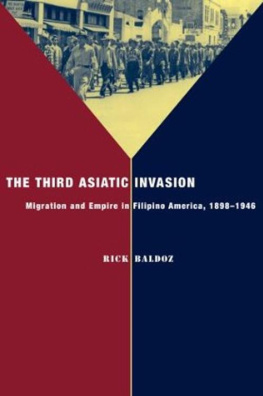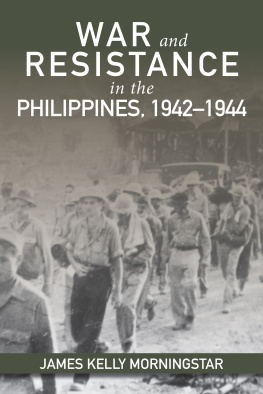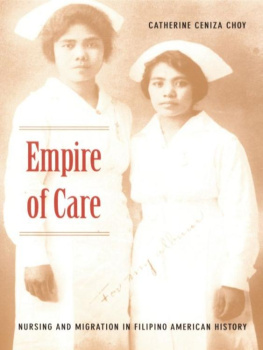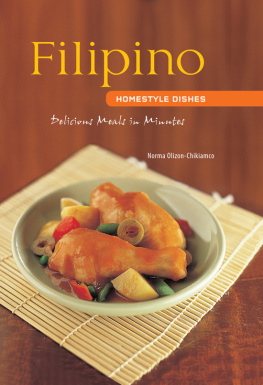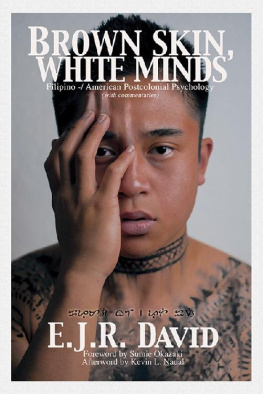THE ASIAN AMERICAN EXPERIENCE
Series Editors
Eiichiro Azuma
Jigna Desai
Martin F. Manalansan IV
Lisa Sun-Hee Park
David K. Yoo
Roger Daniels, Founding Series Editor
A list of books in the series appears at the end of this book.
Lured by the American Dream
Filipino Servants in the U.S. Navy and Coast Guard, 19521970
P. JAMES PALIGUTAN

2022 by the Board of Trustees of the University of Illinois
All rights reserved
Cataloging data available from the Library of Congress
ISBN 9780252044595 (hardcover)
ISBN 9780252086670 (paperback)
ISBN 9780252053603 (ebook)
This work is dedicated to my father,
Proceso A. Paligutan, 19302017.
Dad, I hope this book makes you proud.
Acknowledgments
The years spent researching and writing this book pendulated between misplaced meandering and intellectual reward, darkness and illumination, uncertainty and surety. As this book reached its final stages, the cumulative energies expended are in hindsight a homage to family and a proverbial labor of love as much as an arduous effort at scholarship. That this work on a personal level transcends its narrow historical and topical purview, directly relating to my own family's place in America, can only be explained as a blessing. This fact unsettles the notion of academic research and writing as work, while redefining itin this case, at leastas an impulse governed by a quest for self-knowledge.
The debts incurred along this quest are numerous. It is not an overstatement to say that this book would likely never come to fruition had it not been for the guidance of Yong Chen, my graduate adviser and dissertation chairperson. He held an unwavering confidence in me as a graduate student even during times of my grave doubt, and his guidance and reassurances were very crucial to the completion of this project. Professor Chen's scholarly expertise, experience, and wisdom regarding things of true importance in life will never be forgotten, and an utang na loob (Tagalog for internal debta Filipino outlook implicating lifelong gratitude and payback) was established since the day I asked him to be my graduate adviser. I cannot speak highly enough of my friend Yong Chen, and I hope I can adequately repay him through the years.
A great intellectual debt is owed to Yen Le Espiritu, whose incisive comments and critical eye has made this work undoubtedly much stronger than originally conceived. Her erudition left no topic unturned and exposed holes in my thinking imperceptible by me before our discussions. There is a reason why she is one of the most popular professors at the University of California San Diego, and her kindness and generosity are well known to all her students. The field of Asian American Studies has greatly benefitted from the pioneering work of Le Espiritu.
Mike Davis, maverick scholar and gifted wordsmith, has been a tremendous guide throughout my intellectual Bildung as a would-be historian and academic. Each of our conversations, sometimes veering into late hours over glasses of beer and wine, was always memorable, touching upon subjects as variegated as family, race relations in Los Angeles, Samoan street gangs, Manny Pacquiao and the history of boxing, General Harrison Gray Otis and the Philippine-American War, the big island of Hawaii, and of course, Filipino navy stewards. Mike's genuine warmth, capacious memory, and spellbinding erudition never failed to astound me; needless to say, his trenchant comments were indispensable in the successful completion of this work.
I especially thank Emily Rosenberg for generously offering her insights regarding this work. A giant in the field of modern U.S. history, she in her scholarly work has enriched the intellectual landscape of the discipline, and no serious scholar interested in such diverse topics as U.S. foreign policy, history and memory, economic history, and American modernity can ignore her work. Her generous critiques were important in making sections of this work more lucid and historically accurate and thus a stronger work overall.
Special mention goes to Dorothy Fujita-Rony, who introduced me when I was a first-year graduate student to the intellectual landscape of Asian American Studies, an academic terrain that I will never cease exploring. I am also indebted to the professors, teachers, and mentors I have had throughout my educational development, including Dickson Bruce, Alice Fahs, Ken Pomeranz, Mark Poster, Heidi Tinsman, Anne Walthall, Jon Wiener, and R. Bin Wong at the University of California Irvine. Thanks also to my teachers at San Diego State University's philosophy department, especially Steven Barbone, Deborah Chaffin, J. Angelo Corlett, Andrew Feenberg, Robert Francescotti, Tom Weston, and Mark Wheeler, who were all critical in my intellectual development. I also thank Regina Akers and the helpful staff at the Naval Historical Center in Washington, DC, and Nathaniel Patch at the National Archives II in College Park, Maryland. Also, a shout-out to my colleagues throughout the years, especially Brittany Adams, Brooke Bui, John Crocitti, Christina Ghanbarpour, Catherine Christensen Gwin, Bill Jahnel, Gloria Kim, Kristin Marjanovich, Jonathan McCleod, and Eric Reyes. Thank you so much for your advice, guidance, and support.
I was excited to receive an e-mail from Dawn Durante, senior acquisitions editor at University of Illinois Press. Dawn was nothing less than superb in her efforts to make this project come to fruition, whether offering generous writing and structural suggestions, composing and sending letters of support for research grants, or accommodating special requests. Upon her move to the University of Texas Press, I had the pleasure of working with acquisition editors Alison Syring and Dominique Moore. They have continued UIP's tradition of geniality and comradery, and I am very grateful to both of them. I also thank all those involved at the press, especially the anonymous reviewers and the Asian American Experience series editors, whose generous contributions have led to an improved work. Also, this endeavor in expressing gratitude would not be complete without acknowledging Mary Lou Kowaleski, whose keen copyediting skill contributed to a more polished version of this book while teaching me how to be a better writer.
And, of course, I cannot overstate my profound appreciation toward all those who agreed to be interviewed for this project and sincerely hope that this written work sufficiently honors the sacrifices they have made in order to achieve the American Dream for themselves and their families in the United States.
Lastly, I owe debts that can never be repaid to my family: my father Proceso Paulie A. Paligutan; my mother, Cecilia; my brother, Earl; my sisters, Eleanor and Janice; my brother-in-law, Lou Happy Pontanares; my sister-in-law, Geraldine Bautista Paligutan; my nephews and nieces, Andrew, Chelsea, Emily, Jillian, Sam, Pearl, Perri, Cedric, and Christopher; and all members of my extended family in the United States and the Philippines. Also, much love to all my friends, especially to all my fellow musicians, whom I have collaborated with and learned from throughout the years. You have all affected me in immeasurable ways, and I am truly blessed to have you all in my life.
INTRODUCTION
A Metaphysics of Absence
Filipino Americans in the Margins of U.S. History

